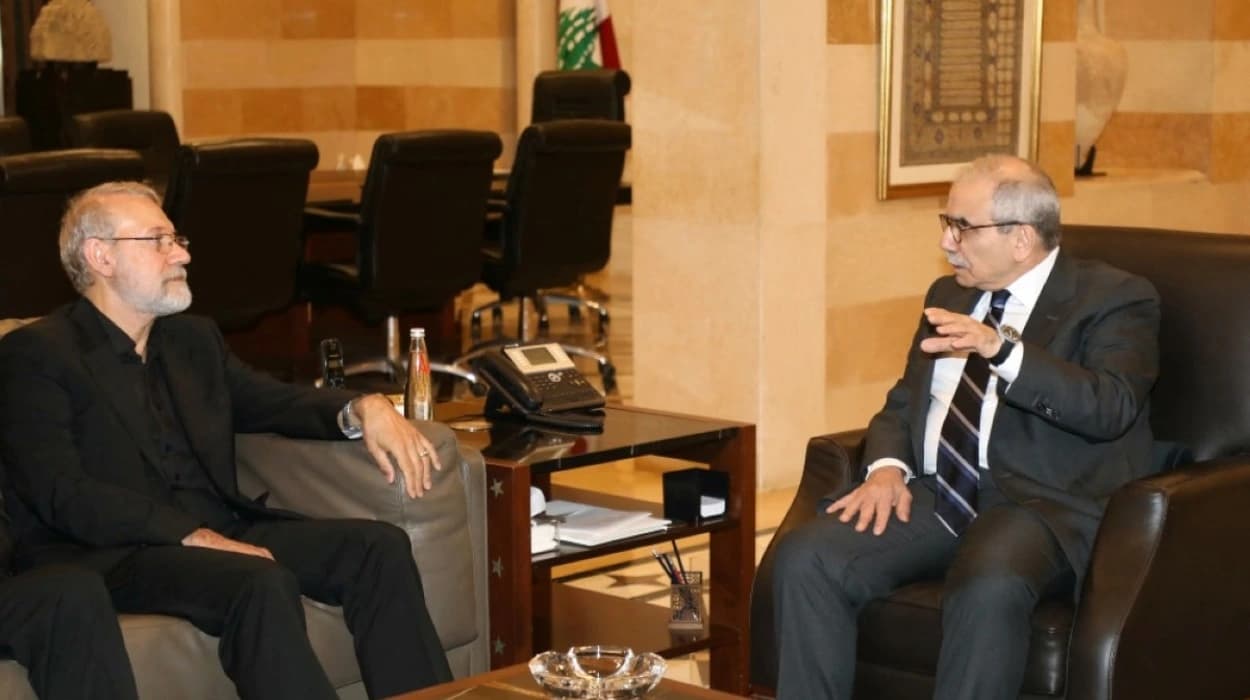Ali Larijani, Secretary of Iran’s Supreme National Security
Council, visited Beirut to meet Lebanese Prime Minister Nawaf Salam and Speaker
of the Lebanese Parliament Nabih Berri, focusing on regional cooperation and
attending the anniversary of Hezbollah leader Hassan Nasrallah’s martyrdom.
Larijani’s Beirut Visit and Key Meetings
As reported by WANA on September 27, 2025, Ali Larijani
arrived in Beirut with an agenda to meet Lebanon’s Prime Minister Nawaf Salam
and Speaker of the Parliament Nabih Berri. The visit, including these
high-profile meetings, was part of ongoing diplomatic engagements aimed at
strengthening Iran and Lebanon ties and addressing regional security
challenges. Upon arrival, he also stated the purpose of attending the martyrdom
anniversary of Sayyed Hassan Nasrallah, a prominent Lebanese resistance leader.
Remarks on Israeli Policies and Regional Cooperation
Press TV’s correspondent noted Larijani’s comments on
Israeli actions in the region. Larijani said,
“It has become evident to all that the Zionist regime shows no mercy to any country,”
referring specifically to Israel's attack on Hamas leadership in Doha earlier
this month, which he described as “state terrorism.” He highlighted that this
shared situation has encouraged nations in the region to increase cooperation,
which he described as “the right approach” and expressed Iran’s support for
such unity.
Tasnim News Agency reported Larijani’s call for regional
states to enhance mutual collaboration in response to common challenges from
Israeli activities, advocating for a collective strategy. He mentioned his
attendance at ceremonies commemorating Hezbollah martyrs, describing Hezbollah
as important for the Islamic world and a notable presence in the region.
Historical Friendship and Future Aspirations
Larijani spoke about the historical friendship between Iran
and Lebanon, mentioning its growth in recent years. He expressed hope that
developments in Lebanon would benefit the Lebanese people and allow the
formation of a “strong and independent government.” He also highlighted
Lebanon’s resilience and the role of Hezbollah in defending the country amid
external pressures, including calls from the US and Israel to disarm the group,
which remains widely supported among Lebanese.
The Washington Post reported that Larijani encouraged
regional nations to set aside differences, describing Israel as an actor
working against the region’s interests. His visit coincided with the
anniversary of Hassan Nasrallah’s assassination, symbolizing ongoing resistance
related to Israeli actions in Lebanon.
Official Reactions and Meeting Outcomes
ISNA and BORNA News reported that Larijani’s discussions
with Lebanese Prime Minister Nawaf Salam covered regional security and
bilateral cooperation. Salam underscored the importance of respecting Lebanese
sovereignty and maintaining strong diplomatic relations with Iran. Larijani
reiterated Iran’s support for independent governments and Lebanon’s right to
resist occupation.
LBCI, a Lebanese news outlet, confirmed the meetings and
highlighted Lebanon’s position on sovereignty within regional dynamics,
emphasizing the significance of this high-level dialogue.
Hezbollah’s Role and Regional Dynamics
Al Mayadeen reported Larijani acknowledging Hezbollah's
strength and independence in arms, noting its role as a significant resistance
force and symbol in the region. He also called for broader regional unity and
expressed hope for improved ties between Iran and Saudi Arabia as part of a
wider strategy to address Middle Eastern conflicts.
Ali Larijani’s visit to Lebanon represents a diplomatic
effort amid ongoing regional tensions. The meetings with Prime Minister Nawaf
Salam and Speaker Nabih Berri, along with Larijani’s statements on Israeli
actions and regional cooperation, reflect Iran’s strategic involvement and
continued support for Lebanon. This visit also indicates broader hopes for
unity among Middle Eastern countries in addressing common challenges and
shaping the region’s political future.
